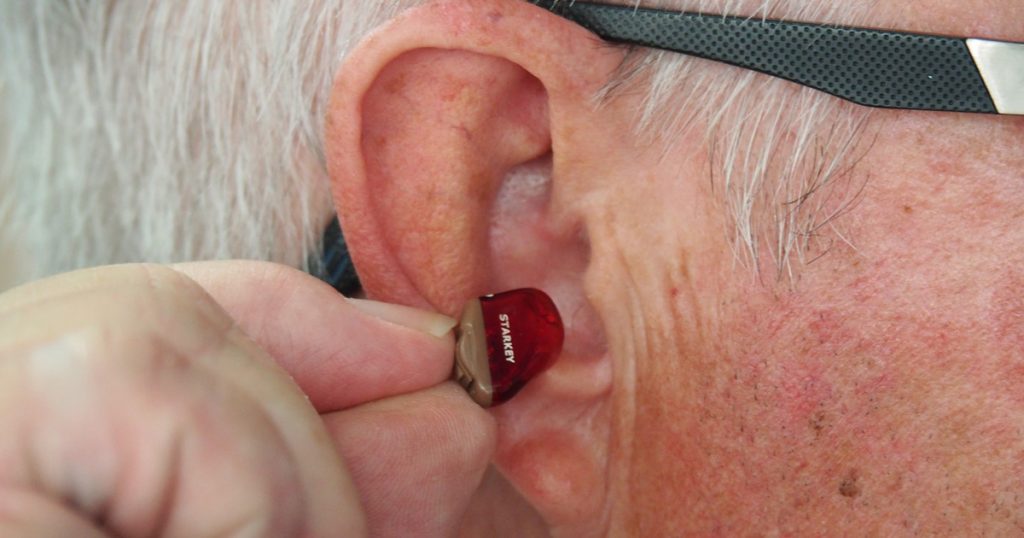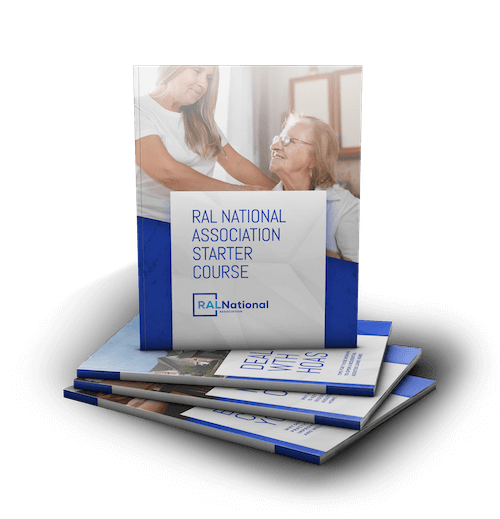Studies show that seniors with hearing loss have a greater probability of acquiring dementia than those with normal hearing.
Hearing health for seniors is part of the quality-of-life value.
Studies have shown that 1 in 3 seniors over the age of 65 suffers from hearing loss. With hearing loss seniors’ cognitive abilities such as attention and retention begin to decline.
Therefore, treating any hearing issues is crucial to mental health for seniors. Sometimes they do not know there is a problem. Here are a few hearing loss indicators:
- Trouble hearing over the phone
- Hard to follow conversations with two or more people
- Needing to repeat what was said
- Turning up the volume
- Background noise hindrance
- Failure to make out what others are saying.
The Residential Assisted Living National Association wants to make you aware that the best thing to do for hearing problems is to advise seniors living in your care home to see a doctor or specialist.
HEARING LOSS LINKED WITH AGE
Tinnitus is associated with hearing loss. It results from ringing sounds in one or both ears. It is not an external sound where others can hear, only you.
Presbycusis is a sensorineural (a lesion or disease of the auditory nerve) hearing impairment gradually.
These are common problems prone to happen to 1 out of 5 seniors as they age. It can be isolating for most seniors.
Seeing a specialist such as an Audiologist can help with hearing health. They test your hearing ability to evaluate the functionality of the ear and its hearing capacity.
A new type of hearing loss technology called Near-Infrared Spectroscopy (NIRS) utilizes brain imaging to gauge the presence and severity of tinnitus and presbycusis. This is done via clinical imaging and can be removed via imaging system de-installation.
It helps doctors understand how treatments are affecting the problem.
Here are a few preventative treatments:
- Earwax removal
- Blood vessel surgery
- Hearing aids
- Medications
Hearing loss is a common problem caused by noise, aging, disease, and heredity. The question stands, do seniors need to see a doctor?
IGNORED AND UNTREATED SYMPTOMS
Ignored and untreated hearing problems can worsen. Seniors who ignore the signs and let the issue go untreated can drop into depression.
It can cause isolation due to the embarrassment and frustration of not hearing or understanding what is said.
When seniors start to feel confused, conflicting, and uncaring because they are unable to hear well, they should seek help immediately.
If you’re unsure if a senior has a hearing problem, speak to their doctor about hearing aids, special training, certain medicines, or surgery. These treatments can help.
ARE HEARING AIDS THE SOLUTION?
Is a doctor or audiologist saying your senior needs a listening device or a hearing aid? Has embarrassment and pridefulness kept seniors in your assisted living home from hearing what is said?
Relax, the social stigma from years ago has come a long way.
Hearing aids also fit the fad of Bluetooth devices. Hearing devices are looking more like all the latest Bluetooth devices and headphones.
They also are small enough to be inconspicuous in the ear.
People who are suffering from any hearing loss or hearing inability have several options.
- Assistive-listening devices – such as mobile apps, televisions and phone aids, visual alerts, vibrations, and signaling devices.
- Cochlear implants are small electronic devices surgically implanted behind the ear to give a sense of sound to severely deaf people. This can also be given in a custom medical device packaging.
- Over-the-counter hearing aids – devices for people with mild to moderate hearing loss who can purchase without a prescription or consulting a doctor.
Hearing loss can be challenging for those suffering to stay connected with others in their circle. It carries a high rate of loneliness and isolation.
Talk with the senior’s doctor or specialist to find the best option for those in your assisted living home.
THE LATEST HEARING LOSS TECHNOLOGY
There is some groundbreaking, innovative, and sophisticated technology surrounding hearing aid devices.
Customizable vibration wearables are a cutting-edge device that allows seniors to use their sense of feel to inform them of the sounds occurring around them.
This technology captures the sound and characterizes vibrational patterns, recognized as a doorbell, a ringing telephone, alarms, sirens, and music.
Wearables are next level.
Bluetooth technology is high-quality technology doubling as a personalized audio device.
Some models can connect to phones and public broadcasting systems, and televisions transmit sound directly into the ear. Bluetooth technology improves every year.
Earbuds and headphones with hearing aid features filter out sound. These devices accommodate people with hearing loss without shame.
Earbuds are made for each ear individually; companies are now making single functional earbuds.
In the past, earbuds, headphones, and hearing aids were considered independent products.
Yet, through recent years, they have combined the technology to work together.
Mask Mode is a new approach for those with hearing loss to navigate around the mask. During the pandemic, it is not easy to understand what people are saying behind their masks.
These are new challenges for many seniors. Listening through masks makes for stifled sounds and the incapability to read lips. Some hearing aids offer a boost to the frequencies.
They are making muffled speech better.
Vital sign monitoring is what future technology researchers are aiming for today.
Research is looking to connect smartphone technology to monitor the heart, brain, and lung functions through an earpiece.
The ear is a great area to use to monitor vital signs because of the blood vessels and arteries that are delicate and susceptible to vascular issues.
What if the hearing aid could also monitor our health?
It takes more to operate a quality care home than understanding the health issues that face most seniors – technology for senior care is advancing quickly.
LEARN MADE EASY AT RALNA
The Residential Assisted Living National Association provides free blogs, legal support, and group discount purchasing and so much more. Learn professional tips about owning and operating an assisted living home at www.RALNA.com. Whether getting answers to questions about hearing loss, or gaining unique tips to make your senior care home a quality place for senior living, join the Residential Assisted Living National Association to stay connected to an ultimate source of industry tips and general information.











